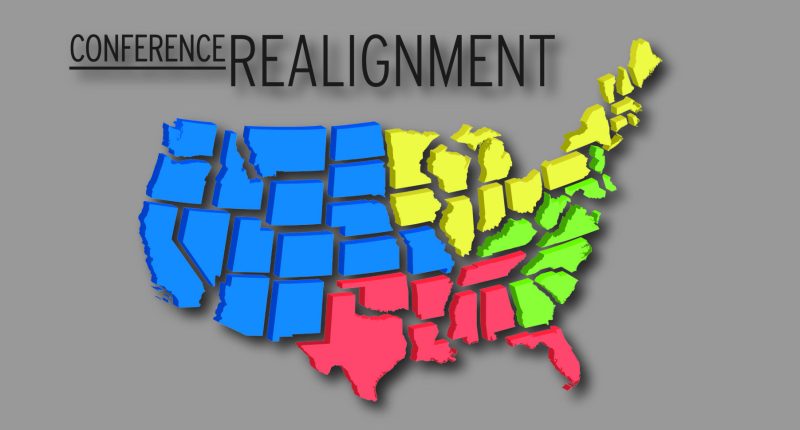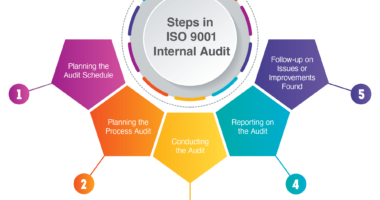Conference realignment refers to major changes in conference membership at all three levels of the NCAA. The realignment began in 2010 and will continue through the 2014 academic year. During this time, a total of 15 teams have moved from one of the three current conferences to another. Among these, the Big 12 added four new teams, and the ASUN and Sun Belt added two each.
Conference Realignment – ASUN to have four playoff eligible teams in 2023
In 2023, the ASUN will have four playoff eligible teams. That number is up from three in 2022. Hopefully, that means some stability in the league. However, the league is still in the process of determining how many auto-bids to award to its teams.
Currently, there are six ASUN schools with football programs. Bellarmine, Austin Peay, Jacksonville State, Eastern Kentucky, Tarleton State, and University of Arkansas-Montgomery are all in the conference Realignment . They will all play in crossover games to get a feel for what the other schools are doing.
The first of those crossovers will take place in the fall of 2021. This year, the conference added a men’s lacrosse team. Eventually, the ASUN will sponsor men’s and women’s lacrosse.
In 2022, the Austin Peay Thunderbirds went 5-6 overall. Despite their success in the ASUN, they failed to earn an FCS playoff berth. Considering that, they were considered a bubble team.
While they did not receive an auto-bid, Bellarmine did win the ASUN Championship. In addition to their championship, they were also selected as the conference Realignment all-tournament team.
Meanwhile, the Utah Tech Bears are in the four-year reclassification process. Ultimately, they plan to move to the NCAA Football Bowl Subdivision.
Finally, the Jacksonville State Owls will also join the FBS in 2023. The Jaguars are currently in the ASUN, but they are moving to FBS next season.
As the realignment wheel moves forward, we will learn more about the potential AQ award, as well as the parameters for joint automatic qualifiers. For now, it’s likely that a joint league will receive one auto-bid into the FCS playoffs. But, it is possible that both conferences could split anytime between seasons.
Big 12 to add BYU, Cincinnati, Houston and UCF
The Big 12 has made its decision to add four schools, BYU, Cincinnati, Houston and UCF. These schools will join the conference in 2023. However, the actual impact of these additions won’t be known until 2025.
While the Big12 may be better positioned than the Big 10, there are still concerns about its position. With the departure of Oklahoma and Texas the conference realignment is losing national prestige. There are fears that Big12 will lose its status as a Power Five conference, which is a mark of national success in sports.
Big 12 officials formed a subcommittee to determine which schools to invite. It included Memphis, USF , Boise State and other teams that had expressed interest in joining the conference. They decided to add four programs, and all of them were approved by the board of directors on Friday.
In order to join the Big 12, a school must give a minimum of 27 month notice. If a school wants to leave the conference, it must pay an exit fee of $18M. The Big 12 bylaws also require two years revenue distribution before a school can leave.
BYU was a popular choice for the Big 12 because of its reputation as a church school. It’s also a member of the West Coast Conference Realignment .
Houston was also considered for expansion, but it has a lot to prove. It won the Peach Bowl in 2015 and won at least eight games in ten of the last twelve seasons.
Aside from the football success of the school, it has basketball prowess. The Frogs won the national championship in 2012 and finished eighth in the AP poll in 2017.
Both of these schools could potentially join the Big 12 in 2023. But they will likely join the SEC in 2025.
Pac -10 to reunite
It seems the Pac-12 was a laggard in the super conference category, so it was time to get it together. To the delight of fans in Los Angeles and the Bay Area , the Pac-12 made the big move from six to eight teams. In the process, Utah and Nebraska made the move from the Big 12 to the Pac- 12. The two schools paired up to play in a new league that is arguably better than the old Pac -12.
This meant that the big question was, what would the new Conference Realignment look like? Not only would the ACC be back but the Big Ten and SEC would be adding more than just a few programs to their ranks. For starters, the SEC could opt for the same tactic bringing the best of the West Coast to the east coast. That, and more money in the bank, would make the conference the envy of the rest of the country.
However, as of right now, the Big Ten is already set for at least another decade. As it stands, the ACC is the premier Conference Realignment on the West Coast, with its 14-team slate of teams largely intact through 2036. Meanwhile, the SEC could consider a similar move – including a re-branded West Virginia. While that may not be the most obvious move, it makes a lot of sense.
A more focused Conference Realignment , with the same level of attention and effort given to it, would be a welcome change. That said, there’s no guarantee that the ACC or SEC will get there. After all, the Pac-12 is the home of the late-night television game.
Sun Belt to have four playoff eligible teams in 2023
When the Sun Belt Conference football season began in 2022, it was the first non-autonomy conference to feature three 10-win teams during the regular season. It was also the first non-autonomy conference to defeat two Top 10 opponents on the same day in nearly two decades.
In 2023, the league will have 14 teams and two divisions. Each team will play a Conference Realignment road game and a conference home game. The team with the best record in its division will receive a bye week in the first round.
If that isn’t enough, three wild card teams are seeded based on in-season play. These three teams will play in a playoff, which is nationally televised on ESPN.
The winner of the Sun Belt Championship Game will be awarded the New Year’s Six bowl berth. This is awarded to the Sun Belt champion if they are the Group of 5 Conference Realignment champion.
The other seven teams in the Sun Belt Conference Realignment will qualify for bowl games. Forthcoming bowls include the Duluth Trading Cure Bowl, which will feature conference champion Troy.
The Troy Trojans finished the regular season with 10 wins. They were ranked in all three major polls. They have a top-rated defense, which allows 16.8 points per game. UTSA will face them in the bowl.
The James Madison Dukes are tied for the Sun Belt’s best standings. They will play with the Sun Belt’s second-best team to decide the Sun Belt East championship. However, the Dukes are not eligible to play in the Cotton Bowl or the Sun Belt Championship Game.
Sam Houston will join the FBS in 2022. Jacksonville State will also join the FBS in 2023, while Kennesaw State will leave the Big South.
MAC to be quietest of the Group of 5 leagues
The Mid-American Conference Realignment (MAC) has been one of the quieter Group of 5 leagues during realignment. In fact, the MAC is the only one of the five that didn’t make any realignment changes.
While the MAC hasn’t been spruced up like a lot of other conferences have, the MAC has a few key benefits. Most importantly, the league is the largest subsidized FBS conference. It’s also largely suburban. And it’s got a strong bottom.
Another benefit is that the MAC hasn’t been subjected to the musical chairs game. This is important, as more teams are being tossed around in mid-major Conference Realignment . However, the MAC still has some solid programs.
There are a few reasons the MAC has gotten off to a slow start. The best example is their 2-25 road record. Unlike some of the other Group of Five leagues, the MAC is not a centralized conference that has to travel far to play its rivals.
But it hasn’t been difficult to make the case for MAC to join Group-of-5 leagues. For starters, the MAC has some of the top programs in the country, and it hasn’t been deprived of high-caliber football.
The MAC is a lot like C-USA, though it isn’t as bad. Both have the same announcers, similar quarterbacks, and the same tailbacks. MAC schools also run the same read-option.
Despite its small footprint, the MAC is a surprisingly robust league. And it’s likely to be the MAC to watch in the future. Some of the MAC’s best teams are on the rise, including the Ohio State Buckeyes and the Michigan Wolverines.
On the other hand, the MAC’s biggest downfall is its limited number of games. Adding more schools would dilute the Conference Realignment revenue. Plus, adding a few more schools would inevitably lead to more travel.









